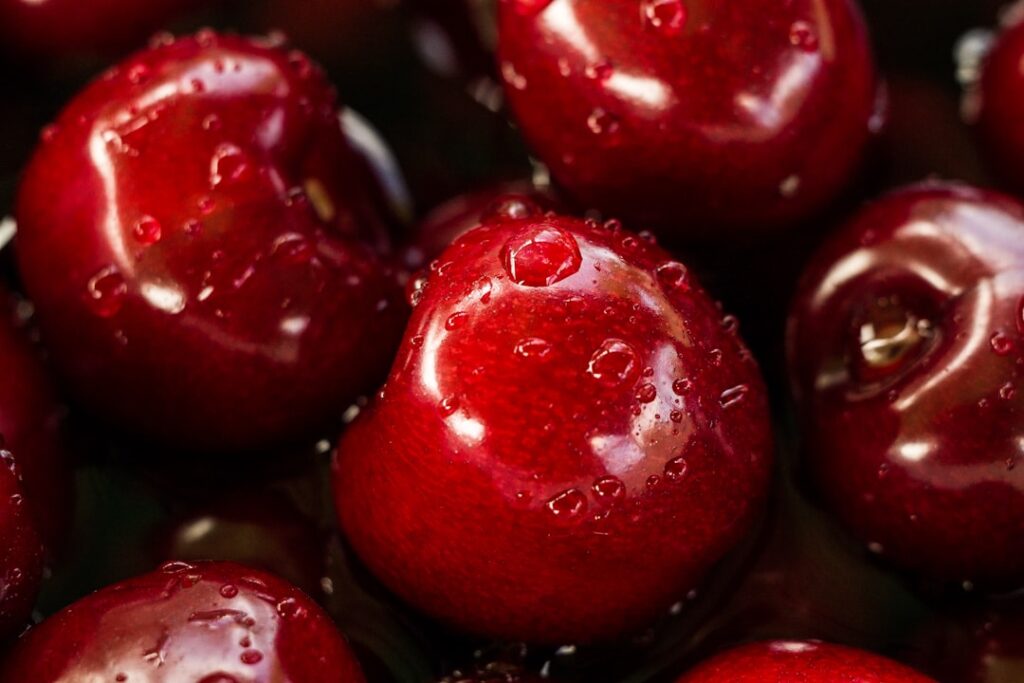Raisins are a popular dried fruit that are made by drying grapes, either in the sun or in a food dehydrator. They are small, sweet, and packed with flavor, making them a versatile ingredient in both sweet and savory dishes. Raisins are commonly used in baking, cooking, and snacking, and they are a staple in many cuisines around the world. They are also a convenient and portable snack that can be enjoyed on their own or mixed with nuts and other dried fruits for a healthy and satisfying trail mix. Raisins come in different varieties, including golden raisins, which are made from green grapes, and dark raisins, which are made from red or purple grapes. They are a nutrient-dense food that provides a range of health benefits, making them a great addition to a balanced diet.
Raisins have been enjoyed for thousands of years and have been a part of traditional diets in many cultures. They are a natural source of sweetness and can be used to enhance the flavor of both sweet and savory dishes. Raisins are also a good source of energy and can provide a quick and convenient boost when you need a pick-me-up. Whether you enjoy them on their own, mixed into your favorite recipes, or as a topping for yogurt or oatmeal, raisins are a delicious and nutritious addition to any diet.
Key Takeaways
- Raisins are dried grapes that are packed with nutrients and health benefits.
- Raisins are a good source of fiber, vitamins, and minerals, making them a nutritious snack option.
- Consuming raisins can help improve digestion, boost iron levels, and promote heart health.
- Raisins can be used in a variety of culinary dishes, including salads, baked goods, and savory dishes.
- Incorporating raisins into your diet can aid in digestion, act as a natural sweetener, and contribute to a healthy lifestyle.
Nutritional Content of Raisins
Raisins are packed with essential nutrients that contribute to overall health and well-being. They are a good source of natural sugars, including glucose and fructose, which provide a quick source of energy. Raisins also contain dietary fiber, which is important for digestive health and can help to regulate blood sugar levels. In addition, raisins are rich in antioxidants, including phenolic compounds and flavonoids, which help to protect the body from oxidative stress and inflammation. They also contain vitamins and minerals such as potassium, iron, and B vitamins, which are important for maintaining healthy blood pressure, supporting red blood cell production, and promoting overall vitality.
Raisins are also low in fat and cholesterol-free, making them a heart-healthy snack option. They are a convenient way to satisfy your sweet tooth without consuming empty calories or added sugars. Raisins can be enjoyed on their own as a quick and easy snack, or they can be added to a variety of dishes to boost their nutritional content. Whether you sprinkle them on top of your morning cereal, mix them into your favorite cookie recipe, or toss them into a salad for a touch of sweetness, raisins are a versatile and nutritious ingredient that can be enjoyed in countless ways.
Health Benefits of Raisins
Raisins offer a wide range of health benefits that make them a valuable addition to any diet. Their high antioxidant content helps to protect the body from oxidative damage and inflammation, which can contribute to chronic diseases such as heart disease, cancer, and diabetes. The fiber in raisins supports digestive health by promoting regular bowel movements and preventing constipation. Additionally, the natural sugars in raisins provide a quick source of energy without causing rapid spikes in blood sugar levels.
The vitamins and minerals in raisins, such as potassium and iron, support overall health by helping to regulate blood pressure, support red blood cell production, and promote energy metabolism. Raisins also contain phytonutrients that have been shown to have anti-inflammatory and anti-cancer properties. Including raisins in your diet can help to support overall health and well-being by providing essential nutrients and protective compounds that contribute to optimal health.
Culinary Uses of Raisins
| Raisin Recipe | Ingredients | Instructions |
|---|---|---|
| Raisin Oatmeal Cookies | Raisins, oats, flour, sugar, butter, eggs, vanilla extract, baking soda, salt | 1. Preheat oven to 350°F. 2. Mix dry ingredients. 3. Cream butter and sugar. 4. Add eggs and vanilla. 5. Stir in dry ingredients and raisins. 6. Drop spoonfuls onto baking sheet. 7. Bake for 10-12 minutes. |
| Curried Chicken Salad with Raisins | Chicken, mayonnaise, curry powder, raisins, celery, green onions, salt, pepper | 1. Cook and shred chicken. 2. Mix with mayonnaise and curry powder. 3. Add raisins, celery, and green onions. 4. Season with salt and pepper. 5. Serve on bread or lettuce. |
| Raisin and Nut Rice Pilaf | Rice, chicken broth, raisins, almonds, onions, garlic, butter, salt, pepper | 1. Sauté onions and garlic in butter. 2. Add rice and cook until translucent. 3. Stir in chicken broth and bring to a boil. 4. Reduce heat and simmer until rice is cooked. 5. Stir in raisins and almonds. 6. Season with salt and pepper. |
Raisins are a versatile ingredient that can be used in a wide variety of culinary applications. They add natural sweetness and depth of flavor to both sweet and savory dishes, making them a popular choice for cooks and bakers alike. Raisins can be used in baking to add sweetness and texture to cookies, cakes, breads, and muffins. They can also be added to granola bars, energy bites, and homemade trail mix for a convenient and nutritious snack option.
In savory dishes, raisins can be used to add sweetness and complexity to rice pilafs, couscous dishes, and grain salads. They can also be used in meat dishes such as tagines and stews to balance out savory flavors with a touch of sweetness. Raisins can also be used in sauces, chutneys, and relishes to add depth of flavor and natural sweetness. Whether you enjoy them in sweet or savory dishes, raisins are a versatile ingredient that can enhance the flavor and nutritional content of your favorite recipes.
How Raisins Aid in Digestion
Raisins are an excellent source of dietary fiber, which is important for supporting digestive health. Fiber helps to promote regular bowel movements and prevent constipation by adding bulk to the stool and promoting the movement of waste through the digestive tract. This can help to prevent digestive issues such as bloating, gas, and discomfort. The natural sugars in raisins also provide a quick source of energy without causing rapid spikes in blood sugar levels.
In addition to their fiber content, raisins contain natural compounds that have been shown to have prebiotic properties. Prebiotics are non-digestible fibers that promote the growth of beneficial bacteria in the gut, which can help to support overall digestive health. Including raisins in your diet can help to promote regularity and support the growth of beneficial gut bacteria, contributing to optimal digestive function.
Raisins as a Natural Sweetener

Raisins are a natural source of sweetness that can be used as an alternative to refined sugars in cooking and baking. Their natural sugars provide a rich, complex sweetness that can enhance the flavor of both sweet and savory dishes. Raisins can be used to sweeten oatmeal, yogurt, and smoothies for a nutritious breakfast option. They can also be used in homemade energy bars, granola, and baked goods as a natural sweetener that provides added nutritional benefits.
Using raisins as a natural sweetener is a great way to reduce your intake of refined sugars while still satisfying your sweet tooth. Their natural sugars provide a quick source of energy without causing rapid spikes in blood sugar levels, making them a healthier alternative to processed sugars. Whether you use them in baking or cooking, raisins are a versatile and nutritious way to add natural sweetness to your favorite recipes.
Incorporating Raisins into a Healthy Diet
Incorporating raisins into your diet is an easy way to boost the nutritional content of your meals while adding natural sweetness and flavor. Whether you enjoy them on their own as a quick snack or use them as an ingredient in your favorite recipes, raisins offer a range of health benefits that make them a valuable addition to any diet. Their high antioxidant content helps to protect the body from oxidative damage and inflammation, while their fiber content supports digestive health by promoting regular bowel movements.
Raisins are also a good source of essential vitamins and minerals such as potassium, iron, and B vitamins, which support overall health and well-being. Their natural sugars provide a quick source of energy without causing rapid spikes in blood sugar levels, making them a convenient snack option for busy days. Whether you enjoy them in sweet or savory dishes, raisins are a versatile ingredient that can enhance the flavor and nutritional content of your favorite recipes. By incorporating raisins into your diet on a regular basis, you can enjoy their delicious flavor while reaping the many health benefits they have to offer.
If you’re looking for a healthy alternative to snacking on raisins, you might want to check out this article on nocrave.com. They offer a variety of delicious and nutritious snack options that can help satisfy your cravings without the guilt. Whether you’re looking for something sweet, salty, or savory, they have something for everyone. So next time you’re tempted to reach for a handful of raisins, consider trying one of their tasty alternatives instead.
FAQs
What is rasin?
Rasin is a type of dried grape, typically made from dark-colored grape varieties.
How is rasin made?
Rasin is made by drying grapes, either in the sun or in a food dehydrator, until they become shriveled and have a chewy texture.
What are the different types of rasin?
There are several different types of rasin, including sultanas, currants, and Thompson seedless raisins.
What are the uses of rasin?
Rasin is commonly used in cooking and baking, as well as in trail mixes, cereals, and as a topping for yogurt or oatmeal.
What are the nutritional benefits of rasin?
Rasin is a good source of fiber, potassium, and antioxidants. It is also naturally sweet, making it a healthier alternative to refined sugars in recipes.
Are there any potential health concerns related to rasin consumption?
Rasin contains naturally occurring sugars and can be high in calories, so it should be consumed in moderation, especially for individuals watching their sugar intake or trying to manage their weight. Additionally, some individuals may be allergic to sulfites, which are commonly used as a preservative in some types of rasin.


